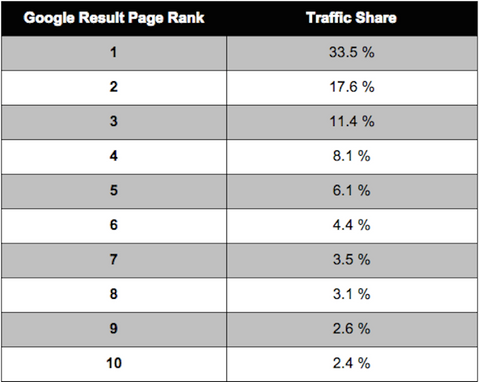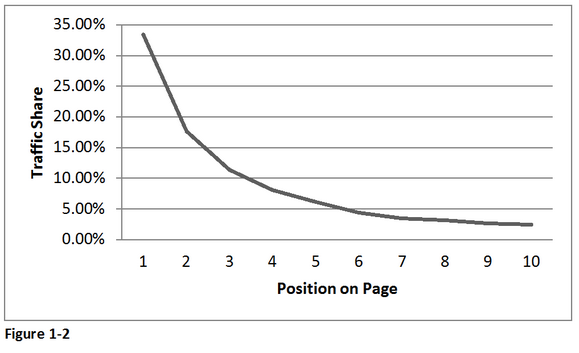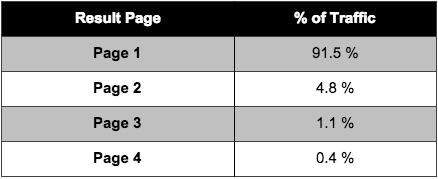In this excerpt from the book Shopify Empire, author Josh Highland discusses why SEO is important and what you can do to maximize your website's ranking in search engine results. Whether it's for your personal site or for a client, SEO expertise is essential to the success of any online store.
Josh owns and operates NewLeaf Labs, a software and services company focused on the Shopify platform. NewLeaf Labs has been a certified Shopify Expert since 2011 and has assisted hundreds of Shopify shop owners.
Want a free copy of the complete book? Read to the end to find out how you can get one!
You might also like: 3 Digital Marketing Strategies for High-Priced Inventory
Why SEO matters
Take a moment and think, how many times have I used a search engine like Google or Bing to find something online?How often do I find what I am looking for within the first few results on the first page? How did Google know which results to show first? How do I get my site listed in the top results?
The answer to all of these questions is SEO. SEO is an acronym for Search Engine Optimization. In a nutshell, SEO is the practice of getting your website’s pages listed and ranked highly in search engine results.
If you have an online store powered by Shopify, you have something that you want to sell. To sell your products, you need people visiting your site. Herein lies one of the major problems of online storeowners around the world, “How do I increase traffic to my store?”
Most people use search engines to find things online that they are looking for. If someone were to search Google for a product that you are selling, it would be optimal for your store to be listed in the results that are returned. If a link to your store is not returned in the results, the user will not be able to easily discover your site. Moreover, even if your store was found in the search results, users typically only click the top few links in the results page.
In June of 2013, Chakita.com, a well-known ad marketing agency, released a study on the value of Google search result positioning.


The data showed that over 62% of users click one of the top three results, with 76% clicking one of the top five results. However, more than one third — 33.5% of users — click on the number one result.
The study also showed that 91.5% of all Google traffic is generated by the first page of results (Figure 1-3). The traffic data past the first page shows a steep decline (Figure 1-4). The second page of Google search results received less than 5% of all traffic. Only one person in 100 (1.1%) made it to the third page of results, while one in 250 users (0.4%) clicked on links from the fourth page of results.


The study found that most users click the first link on the first Search Engine Results Page (SERP). This means that the top rank carries the most authority and user confidence. Google does a great job of bringing relevant data to the top of its results pages. As users we have become conditioned to trust that the top search results will hold what we are searching for, and more often than not, it does.
To surmise, having your Shopify store rank highly in Google searches will mean more clicks into your site, which results in more visitors, which then translates into more sales. The goal of this book is to provide you with the skills you need to rise in the ranks and capture top search engine result positions.
Algorithms — ingredients and recipes
Google and Bing return impressive results when you search for a subject. But how do they know what websites are about? How do they know which websites to list first? Each search engine has its own special set of rules that help it determine how to rank websites. Technically speaking, those rules are called algorithms. You can think of these algorithms as secret recipes that search engines follow when ranking and listing websites.
Search engines continuously scan the Internet, following website links, and collecting information on everything they find. Think of the information that they collect as ingredients. The secret to higher search engine rankings is to make sure that your website contains all of the ingredients that the search engines need to complete their secret recipe. It sounds easy right? It would be if the search engines told us the recipes they were following, but they do not.
Now, let us think of another closely guarded recipe, Coca-Cola Classic. If you called the Coke corporate offices and asked them for the recipe, you would not get very far. Their formula is what makes Coke unique. Similarly, search engine algorithms are closely guarded secrets, with only the provider knowing the exact recipe. If the exact algorithm was known, it would be easy to add all of the required data to your site, and in effect manipulate the search results. If this happened, it would lead to low quality websites making their way to the top of the results, and ultimately people would stop using that search engine because the results would be “spammy,” poor and irrelevant.
Moving targets
We do not know Coke’s exact formula but you can look at the label on a bottle and see the major ingredients. Coke must disclose this information for many reasons, and we can use the ingredient list to gain limited insight as to what is needed to make Coke Classic taste delicious. If we tried hard enough, we may be able to reverse engineer the exact proportions of ingredients on the list and unlock the secrets of Coke.
Since search engine rankings are so valuable, SEO experts conduct countless experiments to reverse engineer the search algorithms used by Google and Bing. By making tiny adjustments SEO experts are able to monitor what works and what does not. Over time these experts slowly begin to crack the algorithms. Given enough time, the algorithms would be completely unlocked. Google and Bing know this, so they routinely change their search formula, which creates moving targets. Unlike Coca-Cola, which is famous in part for its consistent taste, search engines need to continuously make changes to their product and “recipe” to keep up with trends, and thereby deliver the best results to their users.
Google has made considerable changes to their algorithm over the last few years. The most recent major update was dubbed “Hummingbird.” Google named it as such due to the nature of a hummingbird – fast, nimble, elegant – able to change direction in an instant.
I was able to make it to the front page of Google within two months using the methods described in this book. Making it to the front page of Google more than tripled my business.
The major focus of the Hummingbird update was to support the way people use search engines today. Consumers tend to use longer, more specific search strings. Typically, users are not just searching for the term “bicycle” if they want to buy a bike. Instead, they are likely to perform a more specific search such as, “mountain bikes for sale.” Because Google knows where you are located, the search results would be tailored to bike shops in the area that you live. Powering these changes are mobile phones, location tracking software, voice recognition software, and increasing user sophistication.
In the past, there were unscrupulous techniques that made it easy to rank your site at the top of the listings for specific search phrases. Hummingbird and other algorithm changes are now actively looking for unethical SEO behaviors, and punishing sites that use dishonest methods to advance in the ranks. In some cases, these sites are completely removed from search listings – SEO suicide.
Despite the fact that search engine algorithms are constantly evolving, there are many best practices that search engines look for and reward. Later in this book we will explore these factors, explain how to implement them, and show you how to measure SEO success for your Shopify store.
Expectations
Making it to the top of the search engine results is not a quick process. In most cases it's a slow progression of gains until you make the front page of Google. Some market niches are more difficult to break into than others. If you sell hats and are hoping to rank for the search phrase “baseball hats,” it will take much more effort than someone selling “men’s hair pomade,” as the market for hats is more saturated and difficult to breach. In 2008, I actually sold men’s hair pomade via a Shopify store. I was able to make it to the front page of Google within two months using the methods described in this book. Making it to the front page of Google more than tripled my business.
It is crucial to understand that SEO is a marathon, not a sprint. It may be possible to make large gains relatively quickly, but in most cases it takes several weeks or months before search engines start to rank your shop higher. Do not be discouraged by this. Improving search ranking may take time and effort, but the rewards are worth the investment.
If you met a person who was out of shape, but expected to become a vision of health after one day in the gym, it would be obvious that the person was delusional. We all know that getting in shape is a long process, and is difficult. Despite being challenging, the activities associated with healthy living yield profound results over time. You must think of SEO in the same way. Implementing SEO changes and mitigating existing SEO issues is time consuming, and the effects are not visible immediately, however the end results are absolutely worth it.
I like the analogy of SEO and fitness a lot. Both require work, dedication and the right mindset to achieve results. Similarly, in both cases it may be beneficial to get a kick-start by hiring a personal trainer, or in the case of SEO, an SEO consultant.
If you met a personal trainer that told you they could take you from being overweight to an Olympic competitor overnight, or even in a month, it would raise some red flags. The effort-to-time ratio is all wrong. If you choose to hire an SEO expert to assist you, and they promise you a top rank position, or first page positioning within x amount of time – run away quickly! Guaranteed position placement is almost always a sign of a scam or unethical activities that violate Google’s policies. If you need help, look for SEO consultants with demonstrated experience and an existing client portfolio. Shopify makes this easy to do with Shopify Certified Experts.
Shopify Experts are pre-screened and have demonstrated knowledge of the Shopify platform. Due to their expertise, they are uniquely suited to help their clients become successful. If you would like to hire my company, NewLeaf Labs, we are listed here on the Shopify Experts website.
Want a free copy of the book?

What business wins have you seen as a result of SEO?
The first five people to comment will receive a free copy of the ebook!
If you miss the giveaway, don't worry — Josh is offering a 10% discount to all readers using the discount code "shopifyempire10" on the Shopify Empire website.
Read more
- How to be Successful on the New Shopify App Store
- 4 Things to Consider When Designing Wholesale Stores for Clients
- 8 Best Practices for Designing an Ecommerce Site that Converts
- Top Ecommerce Resources for September
- How to Build a Winning Ecommerce Design: An Interview with Vitaly Friedman
- Top Ecommerce Resources for December
- Top Ecommerce Web Design Trends from January
- Designing Social Proof Into Your Ecommerce Website
- 6 Design Conferences to Last You 'Til The End of 2016
- Top Ecommerce Resources for November

